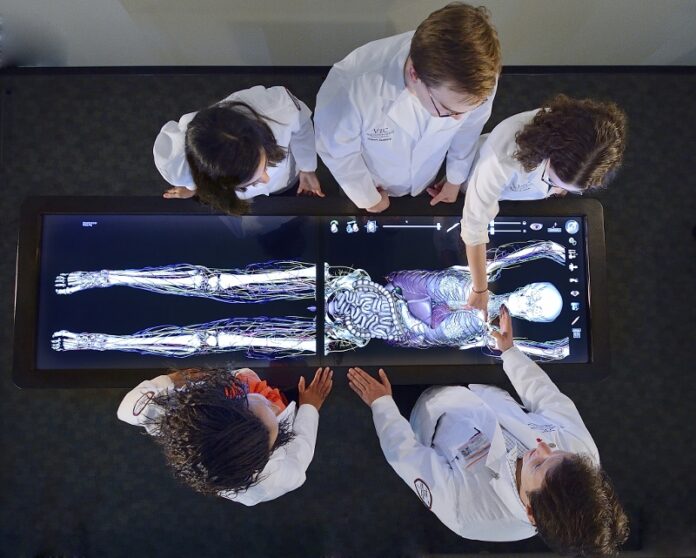
The Virginia Tech Carilion School of Medicine is opening its doors to creative and inquiring minds next month with the first of a series of mini medical schools.
The four-part event, Anatomy for Artists and Other Curious Sorts, will give community members a backstage pass to the medical school’s training facilities, including its anatomy laboratories.
As an added feature, those with an artistic flair will have an opportunity to recreate what they learn through the artistic medium of their choice.
Anatomy for Artists and Other Curious Sorts will take place on four consecutive Tuesdays – March 11, 18, and 25, and April 1 – from 5:30 to 7 p.m. at the Virginia Tech Carilion School of Medicine. The cost of attending all four evenings is $20 and preregistration is required, as space will be limited.
“The mini medical school concept isn’t new; a number of schools offer these events as a way to engage their communities,” said Dr. David Trinkle, the school’s associate dean of community and culture and a Carilion Clinic physician. “We’ll be offering two or three of these a year, but we’ll be taking the concept one step further by offering topics with a slight twist. We won’t be tackling standard health topics in a standard way. With this first one, for example, we’ll be adding an artistic component. Participants who want to translate what they’re learning into art will be able to do so.”
Trinkle emphasized the event will be open to both artists and non-artists alike.
“The only prerequisites are a curious mind and a willing spirit,” he said.

One of the highlights will be a hands-on demonstration of the school’s anatomy table, a device that works like a giant iPad to teach anatomy virtually. The system enhances traditional anatomy instruction with 21st-century computer and imaging capabilities. The result is a simulated high-tech operating table complete with virtual life-sized patients, touch-screen navigation, and a computer software system with seemingly endless applications.
The table went into use last fall and quickly became a popular teaching and learning device among students and faculty.
Participants will gather each evening for a keynote lecture and then disperse into concurrent interactive sessions. The lectures will include
- “Your Brain on Art,” by Ann Harvey, a research scientist at the Virginia Tech Carilion Research Institute;
- “The Human Body: An Owner’s Manual,” by Dr. Saleem Ahmed, the school’s director of anatomical science;
- “The Human Form Through the History of Art,” by Jennifer Anderson, an assistant professor of art at Hollins University; and
- “Body of Evidence: What Happens When Things Go Awry?” by Dr. Carol Gilbert, an associate professor of surgery at the school.
After each evening’s lecture, participants will have the option of rotating through six breakout stations. In addition to hands-on activities in the school’s anatomy laboratories – including an opportunity to play with the anatomy table – participants will have the chance to fabricate mock injuries, to witness encounters with standardized patients, to try their hands at simple imaging using portable ultrasound equipment, and to learn about the construction of prosthetic devices.
The mini medical school is one of many ways the Virginia Tech Carilion School of Medicine extends itself into the community with programs of broad appeal, such as art shows, service learning projects, and multicultural events.
“We want everyone to know we’re more than a self-contained school teaching future doctors,” Trinkle said. “We’re also here to serve this community.”
– Catherine Doss

